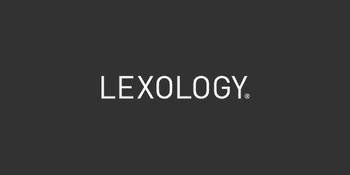Ontario's new gambling structure an ‘inherent conflict-of-interest’: Auditor
Bonnie Lysyk, Ontario's auditor general, pictured in the Ontario Legislature in Toronto on Dec. 7, 2020. (Frank Gunn/The Canadian Press)
By tying the province’s new revenue-generating online betting agency to its regulator, the Progressive Conservative government has created an “inherent conflict of interest,” the province’s auditor general said in a report released earlier this week on internet gaming in Ontario.
On June 22, the federal government passed legislation to legalize single-event sports betting in Canada. The bill’s passage represented the most significant change to sports gambling in Canada in decades — and came as the culmination of attempts over multiple Parliaments to modernize Canada’s gambling laws.
The legislation passed the responsibility of licensing betting companies on to the provinces and territories, which already oversee their own lottery systems.
In response, Ontario’s government incorporated iGaming Ontario on July 6 as a subsidiary of the Alcohol and Gaming Commission of Ontario (AGCO), the government’s regulatory agency.
“(iGaming Ontario) will conduct and manage the new online gaming offerings in the province,” a press release sent by Ontario’s Attorney General’s office announcing its creation said. “It will also help establish Ontario as an international leader in online gaming while ensuring robust measures are in place to protect consumers.”
As its website explains, iGaming Ontario will strike commercial agreements with online gambling operators, which will return a share of their revenues to the Government of Ontario. Auditor General Bonnie Lysyk points out in her recent report that private operators will pay licensing and registration fees to AGCO and a percentage of their gross revenues to iGaming Ontario.
Lysyk views there to be a conflict of interest between AGCO and iGaming Ontario because the latter is its subsidiary, and not fully independent from the regulator.
“Because iGaming Ontario is a subsidiary of the AGCO, it is our view that there is inherent conflict between the iGaming Ontario’s goal of generating revenue and the AGCO’s goal of effectively administering its regulatory oversight,” her report says.
To avoid “governance and regulatory risks,” Lysyk recommended that iGaming Ontario and AGCO be detached from one another, and that the Ministry of Finance take over operation of iGaming Ontario.
The Ministry of the Attorney General declined to do this.
“The benefits of maintaining the status quo outweigh the operational risks and fiscal impacts of establishing a new reporting structure for iGaming Ontario,” it said in its response to the auditor general, which was included in Lysyk’s report.
Since its creation in 1999, the Ontario Lottery and Gaming Corporation (OLG) has been the only permanent operator for gaming in the province, including that which is done online. OLG launched PROLINE+, its new online sports betting platform that offers single-event sports betting, on Aug. 27, the day the federal government’s law changes came into effect.
That will no longer be the case after iGaming Ontario launches its regulated market of private operators.
Since iGaming Ontario was founded, it’s been working to launch the private online betting market that it’ll manage. Originally, December was its targeted launch month. AGCO wouldn’t tell iPolitics if it would hit this deadline, saying only that the agency was working to launch the market “expeditiously.”
For years, Ontarians have had access to thousands of gambling websites operated by hundreds of companies in an unregulated marketplace.
As of earlier this year, Ontarians placed close to $1 billion in online wagers every year, and 70 per cent of that money has been spent on unregulated sites or apps, according to the government.
It’s the Ontario government’s intention to bring these “grey market” betting sites into the market managed by iGaming Ontario.






































